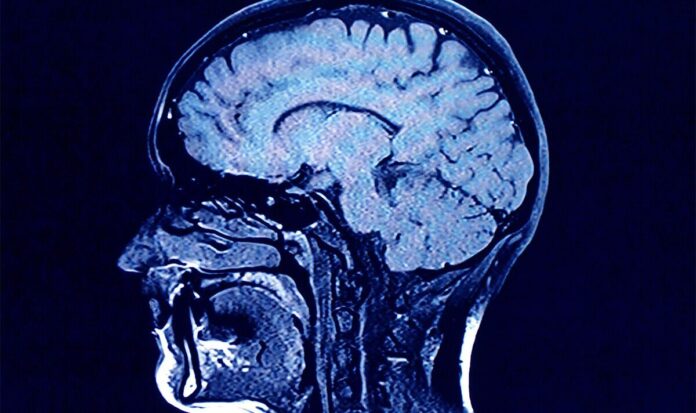A stock photo of a head scan (Image: Getty) Alterations to a key region of the brain involved with controlling appetite have been observed in people who are overweight or obese. Researchers found the volume of the hypothalamus – an area about the size of an almond – tended to be larger in those who were overweight. The differences were most apparent in the regions that control the release of hormones to balance hunger and fullness. It was unclear whether these structural changes were a cause or consequence of weight gain, experts from Cambridge University said. They analysed MRI scans from 1,351 young people with a range of different weights. One theory for the results is that a high-fat diet leads to inflammation of the hypothalamus, which in turn fuels insulin resistance and obesity. Studies in mice have shown just three days of such a diet can cause inflammation. Dr Stephanie Brown, from the university’s department of psychiatry, said: ‘If what we see in mice is the case in people, over time this would change our ability to tell when we’ve eaten enough and to know how our body processes blood sugar, leading us to put on weight.’ Almost two-thirds of adults in the UK are overweight or obese, increasing the risk of health issues such as type 2 diabetes, heart disease and cancer. Dr Brown said the hypothalamus was understood to play an important role in determining how much we eat but little was known about its function in humans because it is so small and hard to see on MRI scans. Professor Paul Fletcher, also from Cambridge University’s department of psychiatry, added: ‘The last two decades have given us important insights about appetite control and how it may be altered in obesity. Our hope is that, by taking this new approach to analysing brain scans in large datasets, we can further extend this work into humans, ultimately relating these subtle structural brain findings to changes in appetite and eating and generating a more comprehensive understanding of obesity.’ The team said more work is needed to confirm whether increased volume is a result of being overweight or if people with a larger hypothalamus are predisposed to eat more in the first place. The findings were published in the journal Neuroimage: Clinical.


